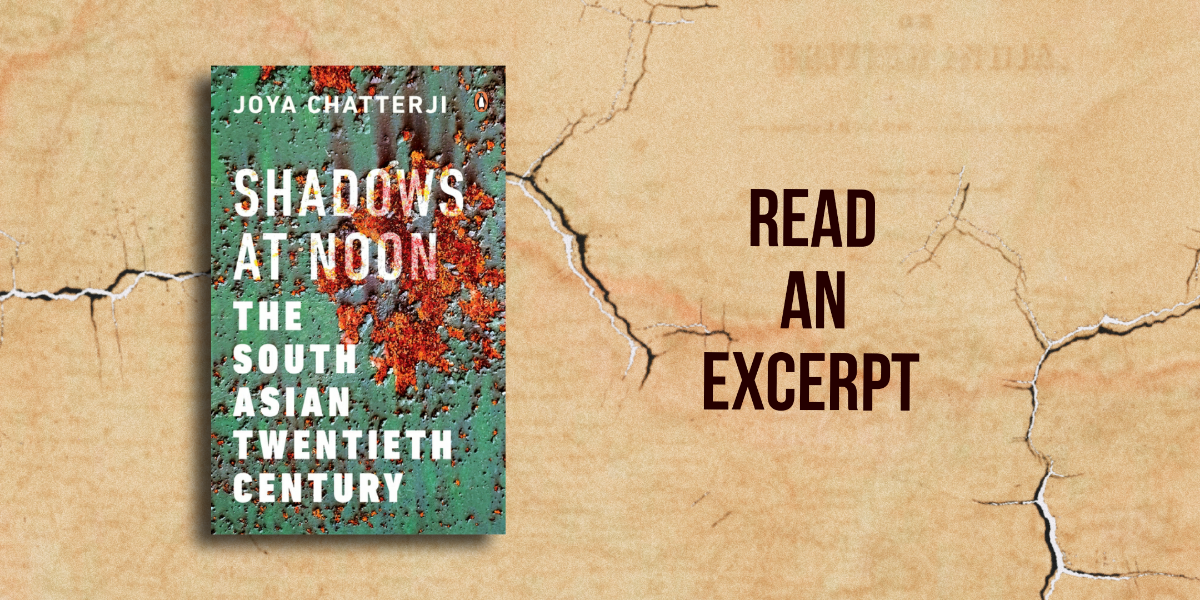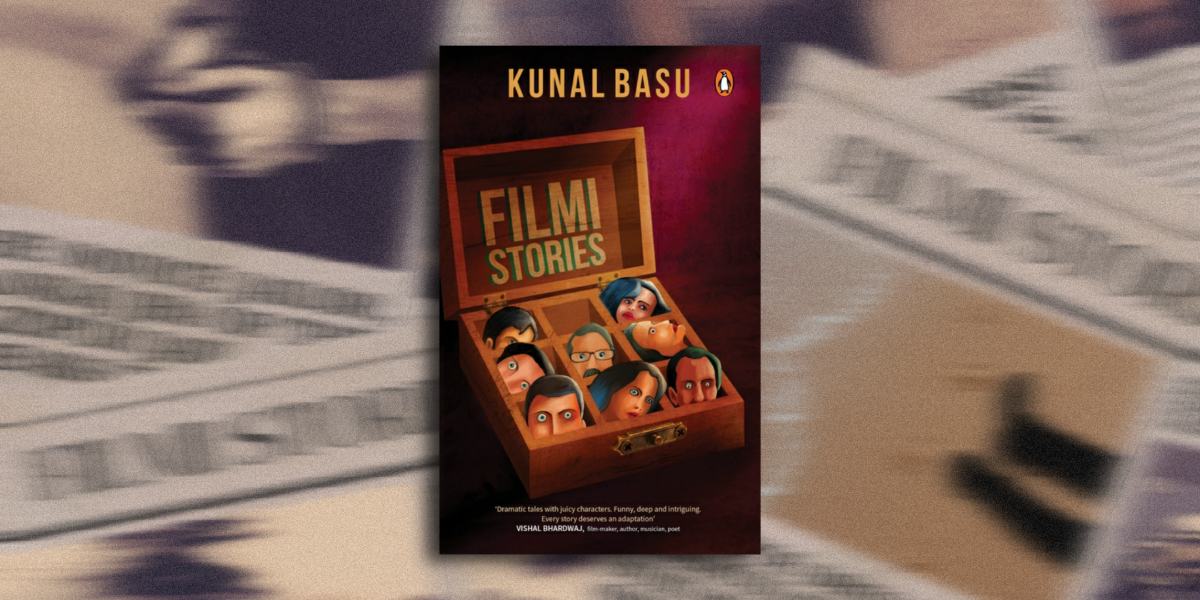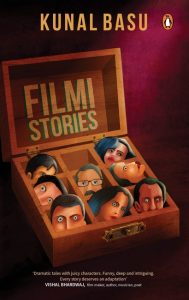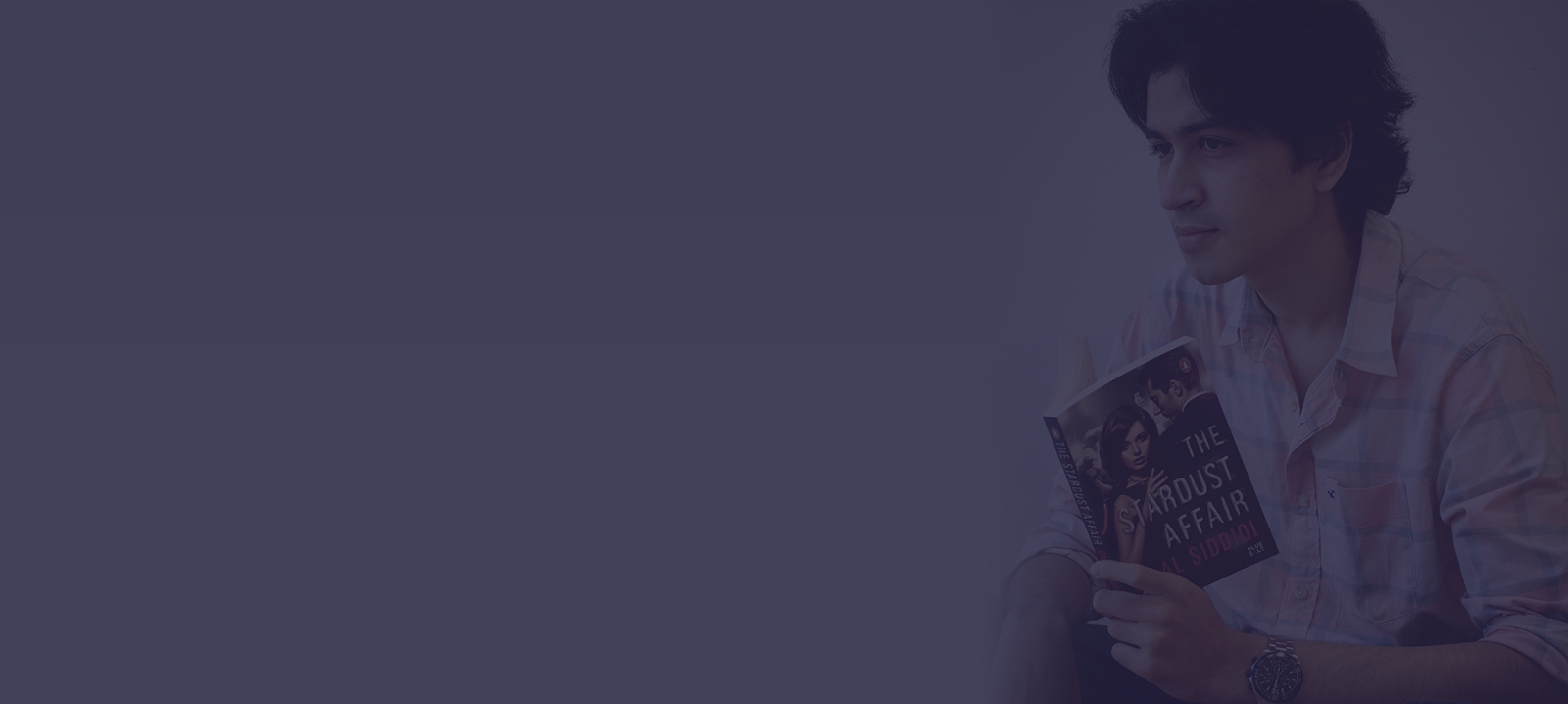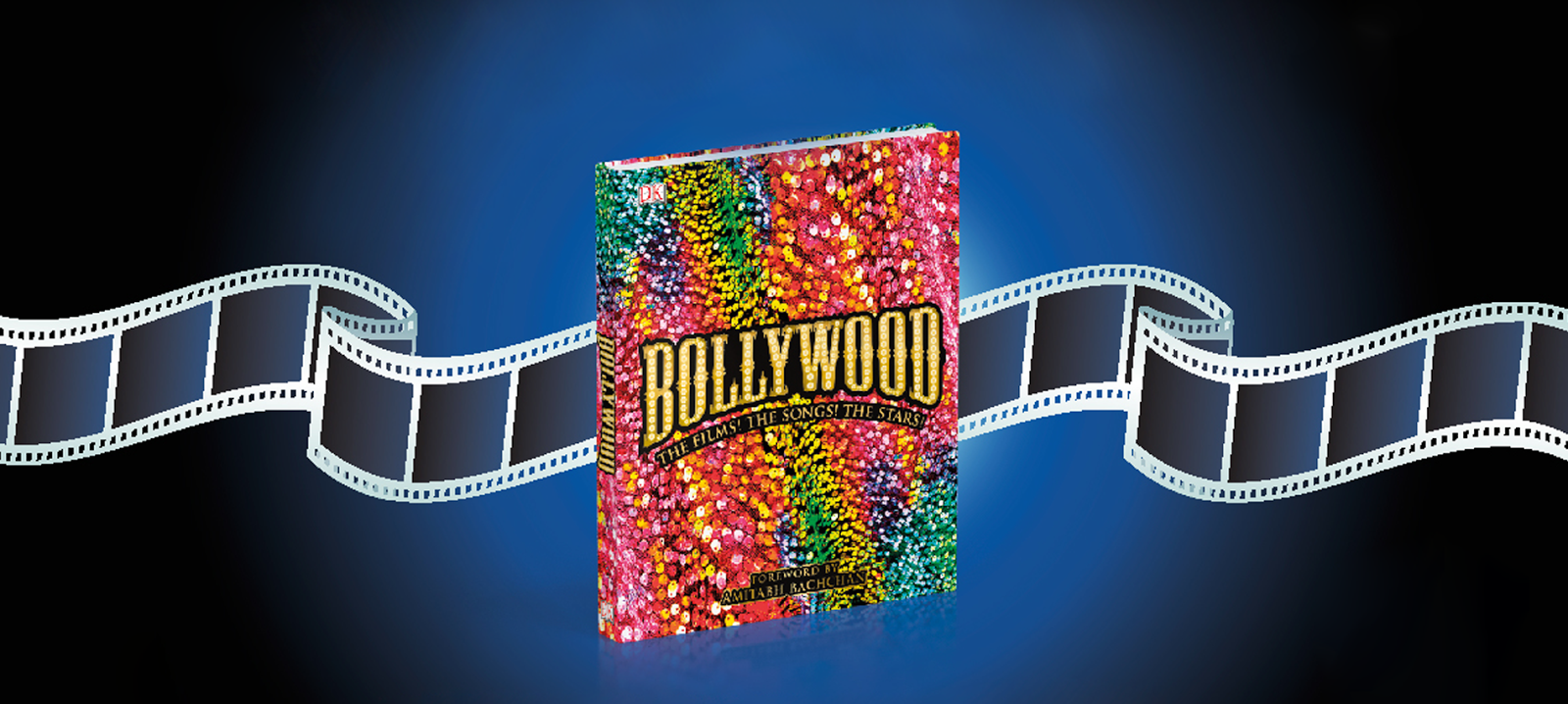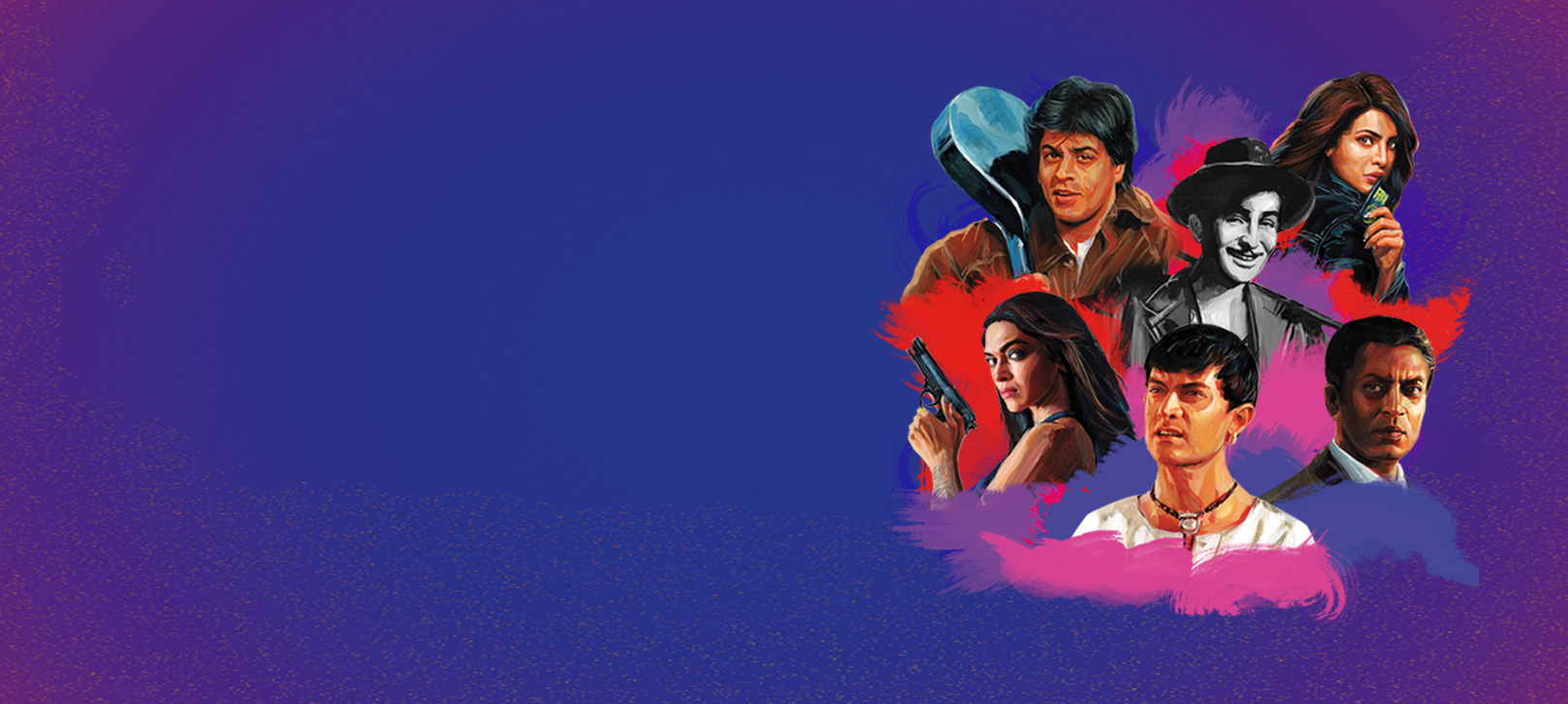Explore the historical origins of Bombay Cinema, fondly known as Bollywood, in this excerpt from Shadows at Noon by Joya Chatterji. As the story unfolds, uncover the intricate mix of languages, influences, and talent migration that shaped Bombay cinema, creating a diverse and cosmopolitan industry that is celebrated all over the world.
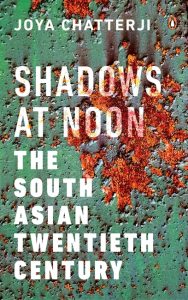
***
Why Bombay, one might ask? It was never inevitable that the ‘Maximum City’ would be its base, whatever film scholars say. Mukherjee, in her otherwise excellent Bombay Hustle, argues that there was something exciting and dynamic about the city that made it the inevitable centre of the film industry. The argument is, to a historian, teleological. By the time Bombay showed its first full-length silent film, Raja Harishchandra (‘King Harishchandra’, 1913), studios were up and running in most major cities of India. Throughout the twentieth century, Calcutta and Madras were large centres of the film industry, and Bengali, Tamil, Malayalam and Telegu cinema were still thriving in 2000.
Nor was it inevitable that Hindustani, the language of Bombay cinema, would become the dominant language of the movies. Indeed, the subcontinent’s most renowned director, Satyajit Ray, made all his films, with one notable exception (Shatranj ke Khilari ), in Bangla. Nor has the flow of influence always been in one direction, from Bombay to these other centres. One of Bombay’s greatest stars, Waheeda Rehman, first performed in the Telegu film Rojulu Maraayi (‘The Days Have Changed’, 1955). She points out that its hit song in which she danced (she trained in the new form of Bharatanatyam) was bowdlerised in the Hindi version of the Telegu original movie. But because it usually flowed that way, I focus on Bombay cinema here.
The migration of talent at every level to Bombay cinema from other regions was fuelled by cultural influences that are not easy to pigeon hole. Take the case of Guru Dutt (1925–64), producer, director and actor in the 1950s, a period many regard (with justification) as the high point of Bombay cinema. He produced, directed and acted in some of the era’s greatest films. By birth a Saraswat Brahmin from western India, Guru Dutt grew up in Calcutta. He was often mistaken for a Bengali because of his (hard-to-define) Calcutta ways (marked even before he married the Bengali singer Geeta Roy in a Bengali caste Hindu ceremony). As a youngster he trained for a while at Uday Shankar’s school for the creative arts at Almora, where he was a peer of Uday’s brother, the sitar maestro Ravi Shankar. For their part, both Uday and Ravi Shankar grew up in present-day Rajasthan, where their father was in the employ of the Maharaja of Jhalawar, but their ‘ancestral home’, as we put it in these parts, is in present-day Bangladesh. (Uday Shankar was another sensation of the era, known for his avant garde choreography, his terrific talent as a dancer and his effort to revive old dramatic performance through modern dance fusion, rather than stilted classicism.)
Given that some of Guru Dutt’s best-known films are ‘Muslim socials’ (a genre depicting a Muslim urban aristocratic way of life), and given that Waheeda Rehman, Rahman and Johnny Walker (Badruddin Kazi, a former bus conductor), all Muslims, starred in some of his most famous films – Pyaasa (‘Thirsty’, 1957), Chaudhvin ka Chand (‘The Full Moon’, 1960) and Kaagaz ke Phool (‘Paper Flowers’, 1959) – and given his productive relationship with the scriptwriter Abrar Alvi, also a Muslim – it’s clear that Bombay cinema was a cosmopolitan world, which drew gifted people of all sorts towards it. Directors sought out talent wherever they could find it. It was a South Asian world of all the talents.
This brilliance was by no means born in Bombay, local to Bombay (or the British Bombay Presidency, post-independence Maharashtra after the former’s division into two states), or even the Hindustani speaking north of the subcontinent. It would be a gross mis – understanding to think of Bombay cinema as the film culture of‘Bombay-wallahs’. Bombay itself was being made by migration at the same time as its film industry.
A funny story illustrates this. A passionate movie buff from the Punjab, Raj Khosla, met Guru Dutt while the latter was directing a film. He wanted a job as a playback singer, but no such job was on offer. Guru Dutt, by all accounts a kindly man, asked Khosla whether he knew any Hindi. ‘Yes,’ he lied. He was hired, but he then had a problem: he knew some Urdu, like many Punjabis, but although Urdu has a similar vocabulary and grammar to Hindi, its script could hardly be more different. Keen Khosla went out and bought a Hindi reader the very next day. Of course he was caught out the minute he was asked to write something in Hindi. Far from sacking him, Guru Dutt found him something else to do and they became firm friends. The point here is that even Punjabi-speakers were flocking to what became known as ‘Bombay cinema’ (which was sometimes made outside Bombay).
Still, the city itself would become the hub of the great studios of the era where the first generations of Hindi movies were made. Studios like Bombay Talkies established themselves on the northern periphery of the city, in Andheri, where they had some access to its urban amenities but could just about avoid its accompanying cacophony. Bombay’s wooded hinterland provided scenic backdrops to many a movie.
***
Get your copy of Shadows at Noon by Joya Chatterji wherever books are sold.







